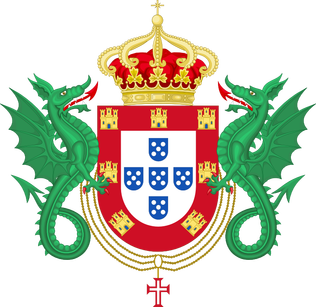Excerpt from
El Peruano:
'President DeLuna addresses Imperialist Aggression abroad
Asked today about the series of wars recently declared in Europe, North America, and Africa, President DeLuna delivered the following extended remarks:
"Does this seem surprising? That Imperialist powers can so little accept Government by the Working Man, Communard, that it refuses to allow the people of Alsace, Lorraine, and Burgundy its rightful govnernance simply because it is Communard? That a Slave State would be faithless to a non-aggression treaty signed literally days beforehand? That an Ultra-Capitalist merchant republic would engage in aggressive war for trade rights?
"This is a grand comedy."
Asked whether the United Andean Communes would be taking any action, he elaborated further.
"We are a people of the land, and I shall ask no man or woman to leave their homes. Our armies shall remain in the mountains. We hope only for peace, and for the preservation of our Socialist and Communard comrades in the Union and France."
As our government has focused on improving the lives of working Andeans, some critics have been demanding more aggressive action from our President. Most Andeans have simply shrugged, and wondered how any of this or themselves were even remotely relevant.'
Excerpt from
El Popular
'
Unionist expatriots welcomed in Lima
Lima has long been the largest enclave of Unionist Americans outside of the continental United States, with a thriving business community, a few English schools, and a celebrated place within the Celebration of the High March every July. Starting last week, however, Ocean Liners (and a few Airships, currently being studied by Engineering Students) began arriving filled with families with children, artists, musicians, and many others.
"We couldn't be sure for our safety," said one mother, while her husband checked that their children hadn't forgotten anything. "And my father has been living in Lima for many years; we knew we had to take this chance to join him." This family had taken an Airship to Caracas, then travelled by rail and ship to Lima; many others came overland to smaller, western ports in Deseret or Mexico, then come south from there.
In the city, a new sound could be heard; mixing with traditional Peruvian pipe-flutes, so common to the streets of Lima, were now the piccolo, the clarinet, and the snare drum. Great crowds gathered to hear the musicians play, the eager snare a delightful counterpoint to the wistful pipe-flute. A happy afternoon was had by all; the brutality of the war that caused this could scarcely be recalled.
However, while all Union citizens have much to fear from Confederate or British occupation, the free
Negro people had special reason for fear. Many could be returned to slavery without cause if captured, a fate unthinkable to most.
"My children will never grow up to be slaves, I can tell you that much," explained one such man. "I'd been thinking about getting away from the states for awhile, and this seemed like our last chance." His children seemed very excited, eager to embrace Communard living. This publication, for one, is proud to welcome our new comrades.'
Excerpt from
El Comercio:
'The Sky's the Limit
Having sponsored the connection the Andean people by the Trans-Andean Railway Collective, President DeLuna's government now seeks to connect its people with the world.
"What do we have, if not height?" explains Alver from where he stands, next to the edge of a cliff. Below him spreads the magnificence of the Bolivian Amazon; he gestures east: "From here, our great Airships can sail straight across the Amazon."
While some
colonos have questioned the Worker's skills in taming the harsh winds of the open skies, the keen observer will note the craftsmanship in every rivet, the result of expert training. The foreman of the job turns to be to explain this quality.
"Yes, while many of the boys are green from the fields, they've been apprenticing under welders with many years of Mastery, and are watched closely. They are eager for the opportunity, and many have answered the call. Never doubt the spirit of your comrades!" The foreman was clearly quite proud of his boys, as is his right. Such a masterpiece is his creation that it allows for a true appreciation for the power of collective action.
This action isn't just for show; many Andean farmers, known to be the most productive and hardworking in the world, have been unable to ship their surplus to market.
"Capitalists of the Old World will always overcharge Communards to ship their goods," Sanchez continues, "For they jealously hoard their wealth, and cannot chance their workers learning of the harmony caused by our Union of Communes, lest their workers rise up. Little do they know... we can ship it ourselves!"
For the workers at this hanger, however, they have far grander motivations than trade.
"I've seen my father work his whole life in the fields, looking at the ground," says Julio, "But I've always had my eyes on the clouds. "'







